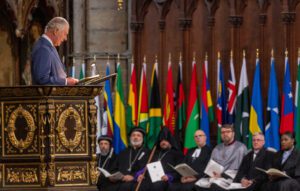A formal dialogue between civil society organisations and Foreign Ministers is now an established feature of the biennial Commonwealth Heads of Government Meeting (CHOGM).
It was the Government of Malta that introduced what is now referred to as the Civil Society Roundtable to the agenda when they hosted CHOGM in 2005. The roundtable in Sri Lanka was the fifth in the series and having been involved in each of them I reflected on the ways in which they have changed – even over this relatively short period of time.
When the commitment to having these roundtable meetings was first made there was applause from civil society and then satisfaction that time had been set aside for their engagement with the CHOGM process. The fact that separately representatives from the youth sector had been granted direct access to Heads of Government at CHOGMs was not lost on civil society. That civil society is not given an opportunity to engage face to face with Heads still smarts, but the structured dialogue with Foreign Ministers was seen as a valuable opportunity to engage with political leaders at a senior level.
The experience of the early dialogues was less than satisfactory. The civil society presentations were disparate, covering the gamut of global concerns, while the ministers’ responses were sceptical about the credibility of the proponents across the table. The dialogue that took place this year was different and it provides guidance for the next set piece – which poetically will take place in Malta in 2015.
This year the Commonwealth People’s Forum’s (CPF) theme provided the point of departure for the dialogue. The CPF focussed on gathering voices from the global South to discuss the post 2015 development agenda. This provided a framework for civic inputs, which called for coordination and cooperation among the diverse array of civil society organisations pressing for their particular issues to be heard.
The meeting started with a reading of the CPF declaration, which clearly caused irritation among some in the room. At the same time you could see that there was something symbolic about it: formally presenting the sum of civil society deliberations to Ministers – to the Commonwealth. This act invoked the opening lines of the Commonwealth Charter, which begins “We the people of the Commonwealth…”
It was followed by seven sharp and concise civic perspectives on issues raised in the declaration, including: the importance of creative expression as a major thread in development; the need for the inclusion of all in development processes; and the vulnerability of small states in an economically and climatically fragile world. There was an eloquent statement in support of linking peace and development and the need for this to be underpinned by openness and dialogue between governments and civil society.
To their credit Ministers responded in kind. There were no long speeches elaborating the specific shortcomings of civil society. Instead the contributions resonated with the participatory development narrative set out by the civil society speakers. There was particularly strong support for small states’ participation and visibility in the global development discourse and for further efforts behind gender empowerment and equality.
Observing the exchanges it was also clear that many of the things that civil society were calling for from governments had already been committed to by most. International treaties and frameworks such as: the UN Convention on the Rights of People with Disabilities; the International Labour Organisation’s Decent Work Agenda; and the UNESCO Convention on the Protection and Promotion of the Diversity of Cultural Expressions spoke to many of civil society’s aspirations. What they called for here was partnership with government and implementation: partnership to shape policy and monitor its impacts; and implementation at a national level of commitments made in the global arena.
There was no glossing over the intricacies and tensions involved when governments and civil society work together. The need for frameworks and institutions that guarantee dialogue was noted and the Foundation’s commitment to building civic capacity – particularly at the regional level was validated.
The dialogue worked well in providing an airing for issues, but is that enough? In most Commonwealth Ministerial meetings, civil society now features on the agenda. Over the past 18 months, in addition to CHOGM there have been major Commonwealth ministerial meetings on education, health and gender equality. At each of these civil society has helped to animate deliberations and contribute to the outcomes. They are now looking for more so that they can justify expending scarce resources on Commonwealth processes. In particular they are calling for a more explicit connection can be made from one meeting to the next, with ways to involve civil society in reporting on the progress made in taking the various mandates forward. Not only would this improve the experience for civil society participants, but arguably it would add a valuable dimension to ministerial meetings for ministers themselves.








